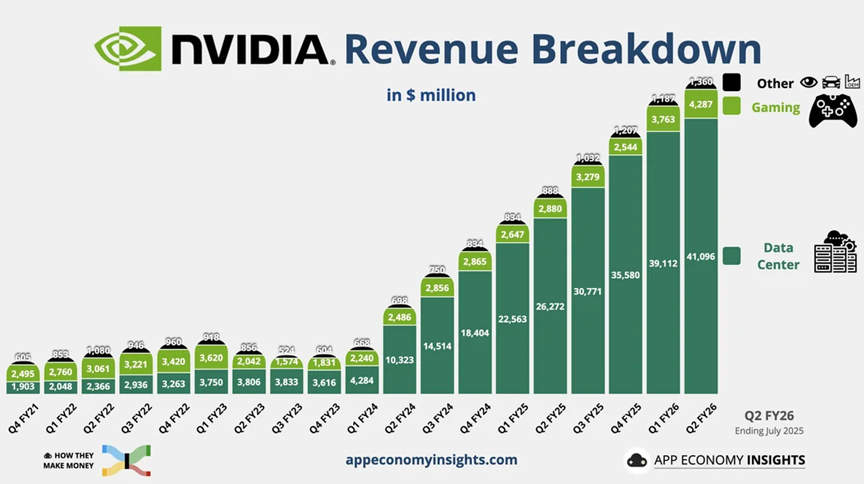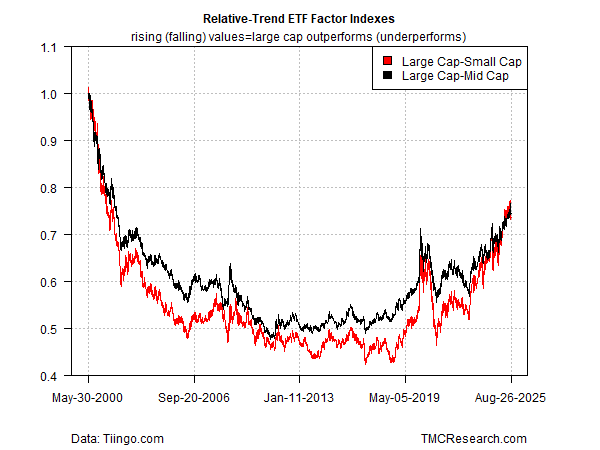Chipmaker Nvidia reported better-than-expected earnings and revenue on Wednesday, a sign that AI-related investing remains strong. “The company is still growing over 50% [year on year] on their guidance at a $50B quarterly revenue run rate – that’s remarkable, even for the current valuation,” said David Wagner, head of equity at Aptus Capital Advisors. Matt Orton, head of advisory solutions at Raymond James Investment Management, said: “If anything, this just highlights that there’s a lot of durability to this (AI) trade… The businesses of these hyperscalers can continue to accelerate, and you’re not seeing any sort of sign of a slowdown being reflected in the results of Nvidia.”
Investments in data centers by tech companies is showing clearer signs of supporting the economy. AI infrastructure, for example, has overtaken the office construction in terms of invested dollars. “The expectations of very high returns in this industry are trumping the high interest rates that we are facing today,” said Eugenio Alemán, chief economist with the financial services company Raymond James.
Sales of Tesla electric cars in Europe tumbled in July, marking the company’s seventh consecutive month of declines, as Chinese rival BYD reports a month surge in purchases. Chinese brands enjoyed a record market share rate of more than 5% in the first half of 2025, a record high, according to JATO Dynamics.
Expectations that the Federal Reserve will start cutting interest rates next month are fueling a rally in bank stocks. “The bank stocks are once again outperforming the general market,” said Gerard Cassidy, a big bank analyst for RBC Capital Markets.
Monitoring relative performance among equity market risk factors can provide potential insights for portfolio tilting decisions, notes TMC Research, a unit of The Milwaukee Company, a wealth manager. “Analyzing these relationships may not be widely followed, at least for some factors, but they offer a possible opportunity for boosting alpha-related portfolio decisions.”

